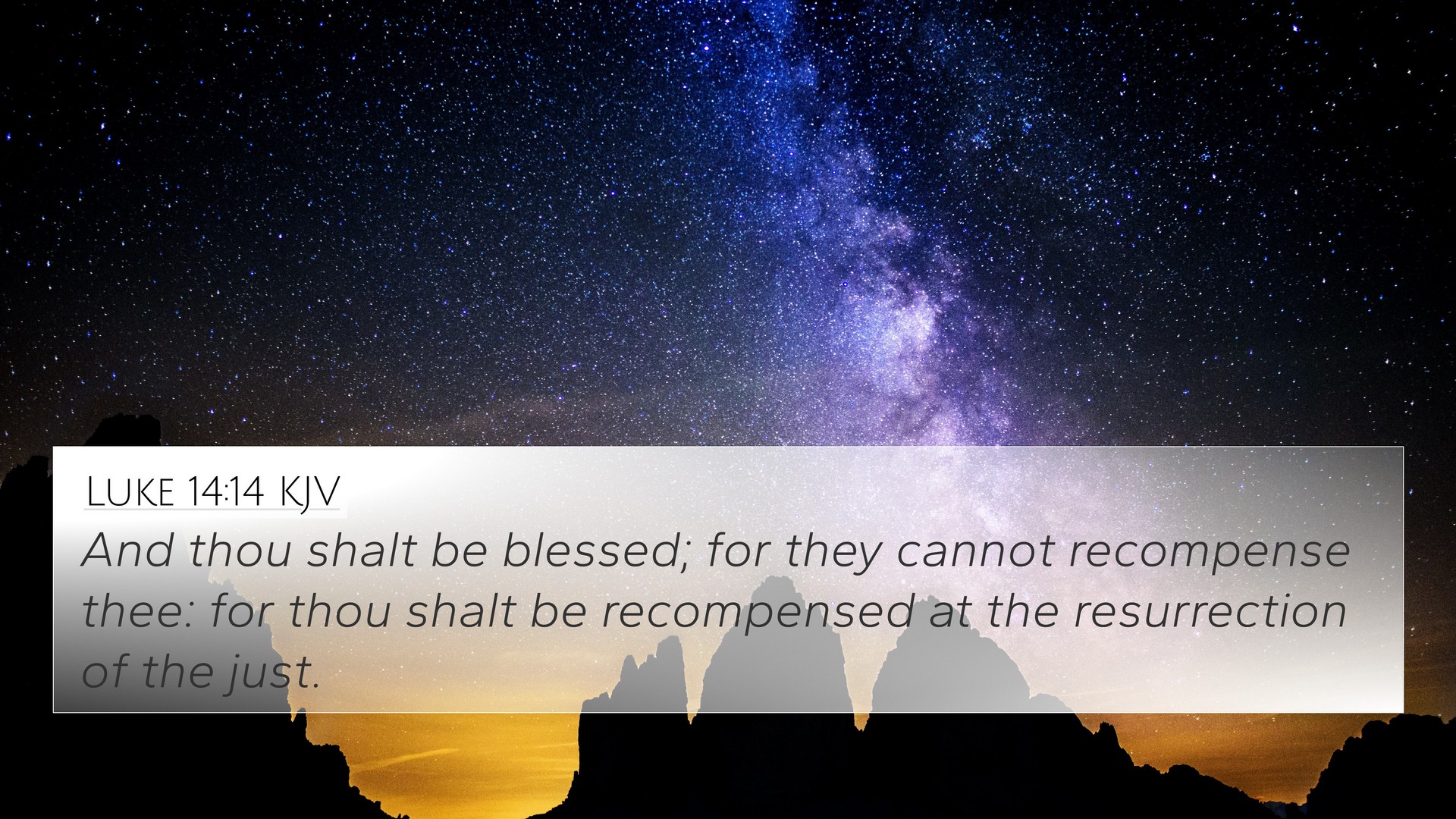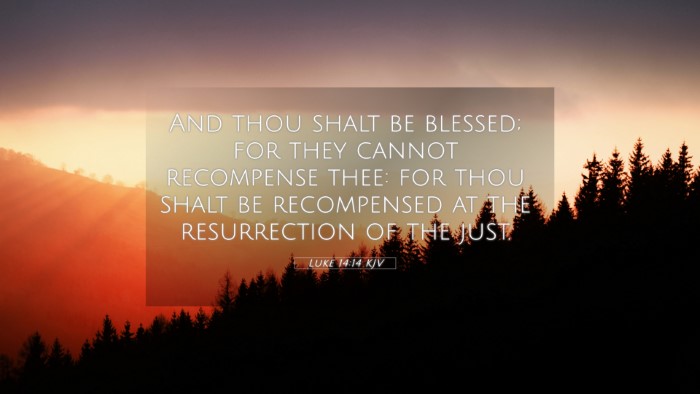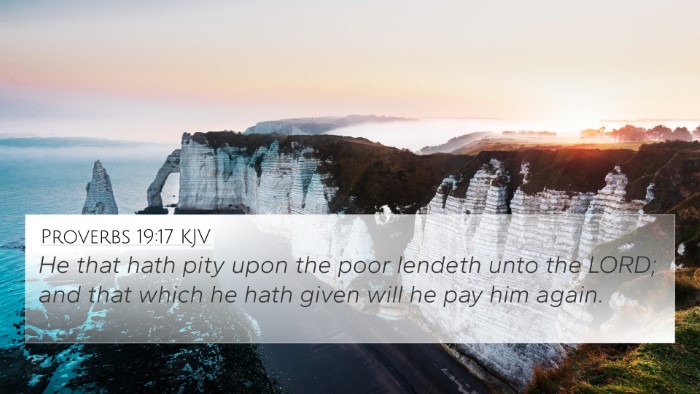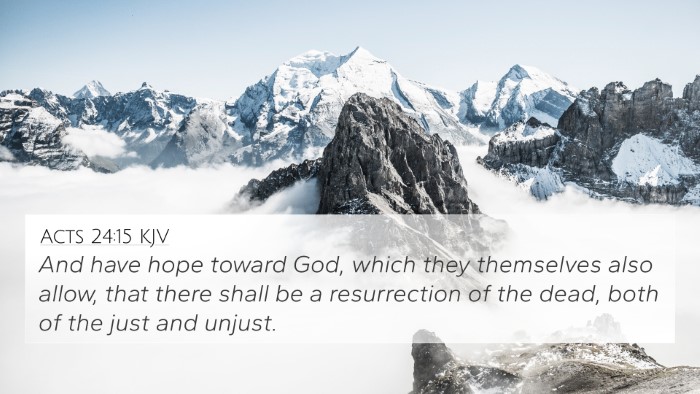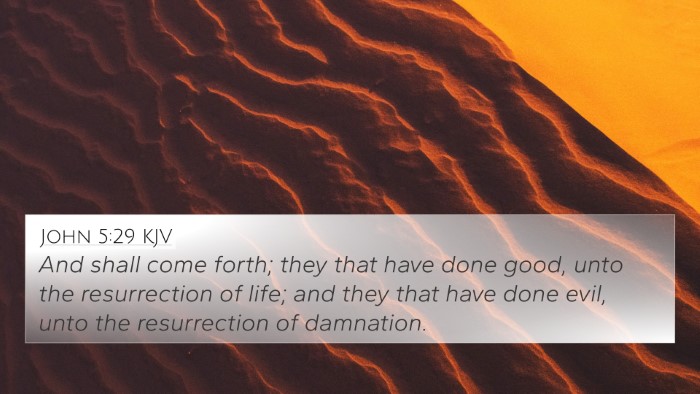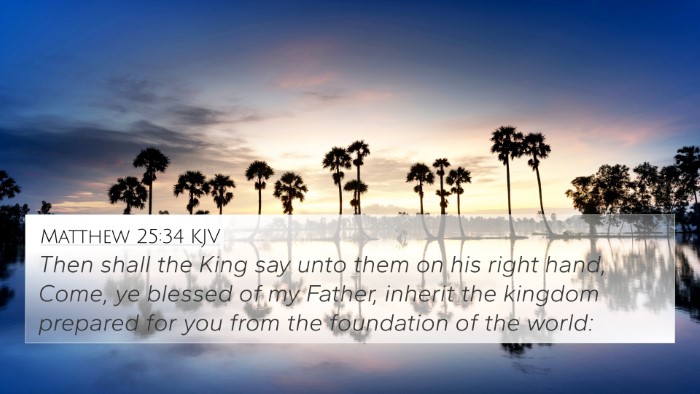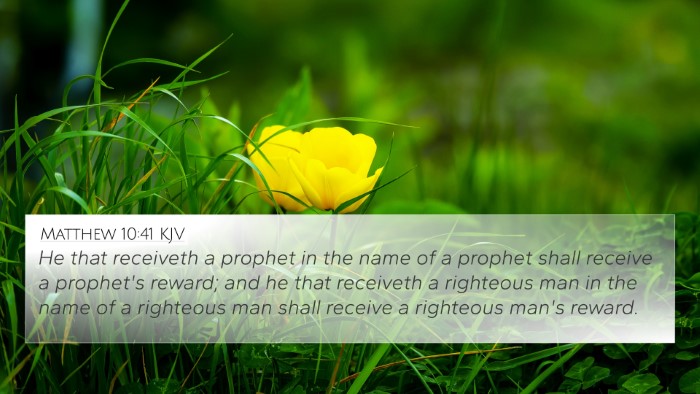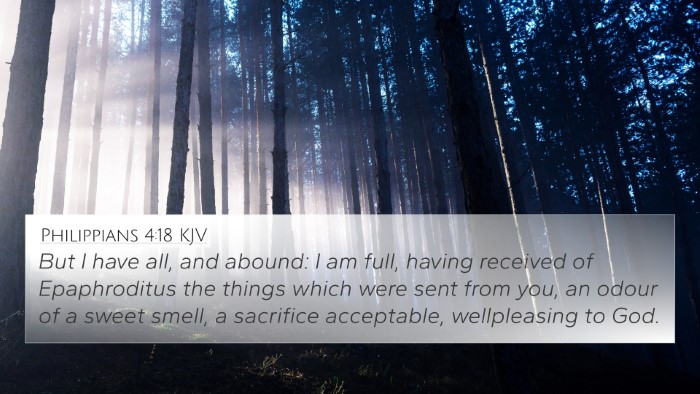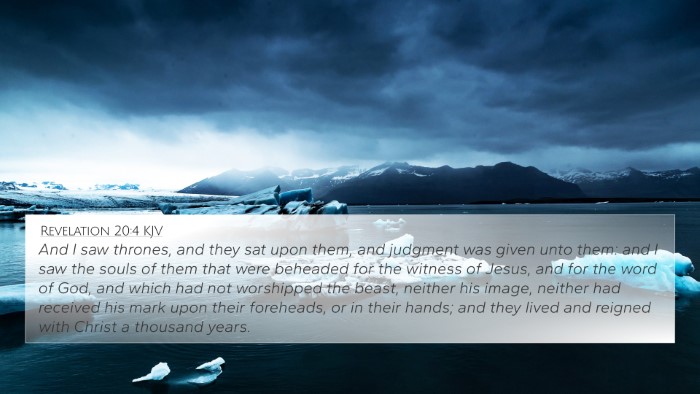Understanding Luke 14:14
Verse: Luke 14:14 - "And thou shalt be blessed; for they cannot recompense thee: for thou shalt be recompensed at the resurrection of the just."
Summary of Meaning
The verse encourages an attitude of selflessness and generosity, especially towards those who are unable to repay kindnesses. The promise of divine recompense at the resurrection reminds believers of the future rewards for their acts of love and charity done for others without expecting anything in return.
Commentary Insights
- Matthew Henry: He emphasizes the importance of showing kindness to the poor and those in need, as earthly rewards are limited, but the spiritual and eternal rewards from God are far greater. Henry notes that true charity is characterized by acts done not simply for worldly recognition, but for the love of God and the good of others.
- Albert Barnes: Barnes points out the significance of this teaching in the context of Jesus’ ministry, highlighting that Jesus invites His followers to practice generosity that mirrors God’s grace. According to Barnes, the emphasis on "the resurrection of the just" serves to strengthen the believer's hope, reinforcing that God sees all actions, regardless of their earthly recognition.
- Adam Clarke: Clarke suggests this verse as a foundational principle of Christian conduct, reminding believers that life should not be about associated gains but about reflecting the grace of God on earth. He emphasizes that the “blessing” refers to a future expectation that accompanies selfless love and giving.
Bible Verse Cross-References
This verse connects meaningfully with several other scriptures that highlight themes of generosity, selflessness, and spiritual rewards:
- Matthew 5:7 - "Blessed are the merciful: for they shall obtain mercy."
- Luke 6:38 - "Give, and it shall be given unto you; good measure, pressed down, and shaken together, and running over, shall men give into your bosom."
- Proverbs 19:17 - "He that hath pity upon the poor lendeth unto the LORD; and that which he hath given will he pay him again."
- Matthew 25:40 - "Verily I say unto you, Inasmuch as ye have done it unto one of the least of these my brethren, ye have done it unto me."
- Galatians 6:9 - "And let us not be weary in well doing: for in due season we shall reap, if we faint not."
- 1 Timothy 6:18 - "That they do good, that they be rich in good works, ready to distribute, willing to communicate."
- Hebrews 6:10 - "For God is not unrighteous to forget your work and labour of love, which ye have shewed toward his name, in that ye have ministered to the saints, and do minister."
Thematic Connections
In exploring the connections between Bible verses, we see a rich tapestry that weaves the call to selflessness throughout Scripture. The themes presented in Luke 14:14 resonate deeply with the following ideas:
- Generosity and Compassion
- Faith in God's Future Rewards
- The Importance of Service to Others
- Trusting in God’s Provision
- The Call to Live Beyond Self-Interest
Tools for Bible Cross-Referencing
To engage in a deeper comparative Bible verse analysis, you may find the following tools for Bible cross-referencing helpful:
- Bible concordances to identify themes and related verses.
- Guidebooks on cross-reference Bible study methods.
- Resources explaining how to use Bible cross-references effectively.
- Systems for tracking biblical references and themes.
- Tools to locate links between the Old and New Testament.
Conclusion
Luke 14:14 serves as an essential reminder of the value of selflessness in biblical living. The assurances of God's ultimate justice and rewards motivate believers to act in kindness without the expectation of payment. The inter-Biblical dialogue created through cross-referencing these scriptures not only enriches understanding but also inspires our daily actions as representatives of Christ in the world.
